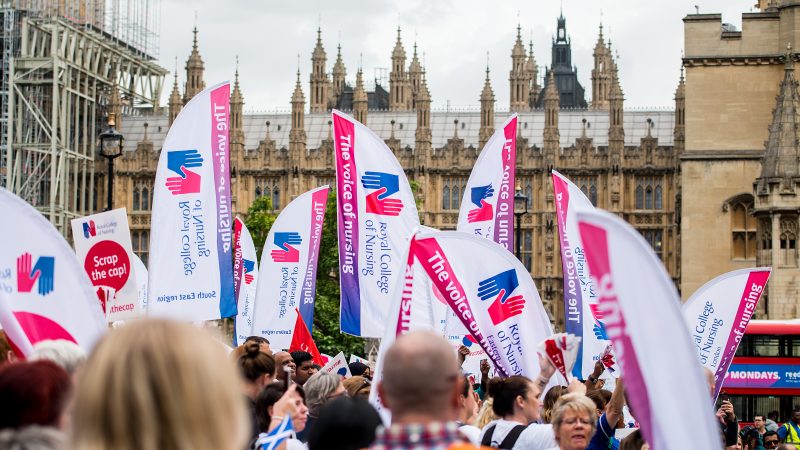
Yesterday evening, the Royal College of Nursing (RCN) announced it would pause strikes planned between March 1st and 3rd, following an offer of what it termed “a process of intensive talks” with the government. The talks are to focus on “pay, terms and conditions and productivity-enhancing reforms” and are set to begin today, with RCN general secretary Pat Cullen having stated she feels “confident” about their ability to reach a deal.
Wes Streeting said the government’s prevarication on entering talks resulted in 140,000 NHS appointments being cancelled. The Shadow Health Secretary declared: “Patients will never forgive the Conservatives for dragging their heels and using patients as bargaining chips.” TUC general secretary Paul Nowak said: “At long last, it appears the government is edging towards the table after months of dragging their feet.” He stressed that the TUC would not accept the government “taking a pick’n’mix approach to pay or playing divide and rule with public sector workers”, adding: “They must confirm they will seriously negotiate with every union in dispute, without preconditions.”
This is not the first indication we have had during the ongoing wave of NHS strikes that the government tends to treat the RCN – who have been striking for the first time in their 107-year history – differently to other unions. In January, Health Secretary Steve Barclay compared the actions of the RCN in preparing for strikes to that of ambulance workers represented by the GMB, Unite and UNISON. Barclay praised the RCN for its level of preparation while implying that ambulance workers had left patients in danger. His claim that ambulance workers had not done enough to ensure sufficient strike cover was one that UNISON general secretary Christina McAnea and Unite general secretary Sharon Graham both called “a lie”. With the government now in “intensive talks” with the RCN, it remains to be seen whether a greater desire not to dispute with nurses – who YouGov estimates to have the most public support of any striking workers – will clear the way to an RCN settlement before agreements are reached with other health unions.
In the House of Lords last night, the minimum service levels bill continued its passage through the upper chamber following a debate led by Lord Callanan for the government, with Nowak’s predecessor as TUC general secretary Frances O’Grady, now Baroness O’Grady, opening for Labour. O’Grady reiterated Labour’s intention to resist the bill, which she described as “shoddy” and “unfair, undemocratic and unworkable”. Labour’s Lord Cashman said the bill was a “stark admission that the government have no intention of paying those in public service what they should be paid”. The legislation also came in for criticism from the Liberal Democrat Lord Fox (who said much of the bill was “invidious”) and Boris Johnson appointee Baroness Fox (who called it “an act of evasion”). The bill will now move to committee stage.
Sign up to LabourList’s morning email for everything Labour, every weekday morning.



More from LabourList
‘Cutting Welsh university funding would be economic vandalism, not reform’
Sadiq Khan signals he will stand for a fourth term as London Mayor
Starmer or Sarwar: Scottish Labour MSPs and MPs split over Keir Starmer’s future